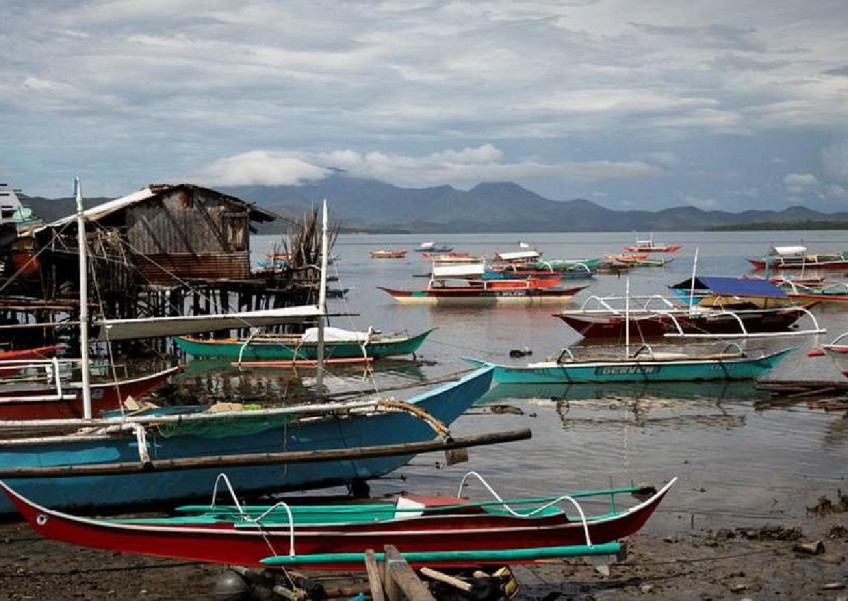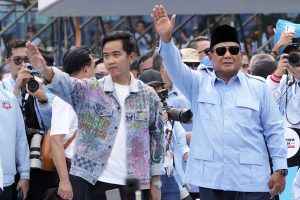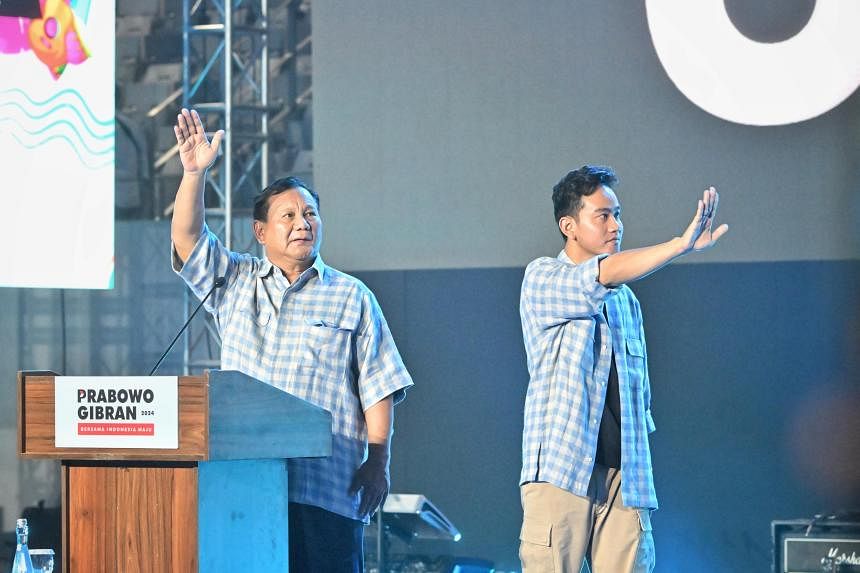The lived realities of sex workers across Europe raise serious human rights concerns. It is crucial to approach this important and complex issue with a full understanding of the human rights consequences of the experience of high levels of violence and inadequate protection from law enforcement and the justice system; stigma; and multiple layers of discrimination that result in isolation and limited access to essential services, including housing and healthcare. All these factors pave the way for a persistent culture of impunity for crimes committed against sex workers, which in turn leads to even more violence.
After having consulted with sex workers across Europe, their representative organisations, relevant international organisations and experts, I call for an approach to sex work[1] that is firmly based on human rights and focuses on the effective protection of sex workers’ rights, prioritising their safety, agency and bodily autonomy over stereotypes and misconceptions. Sex workers, like all individuals, are entitled to protection against discrimination based on their occupation. They should have equal access to basic human rights, services, and legal protections, regardless of their chosen profession.
Exposure to violence and inadequate protection from law enforcement and the justice system
Across the continent, sex workers often face high levels of violence and abuse. This is mainly due to their marginalisation and unsafe working conditions, as well as harmful attitudes which persist in society. Violence can take different forms, ranging from verbal abuse and threats, stalking and harassment, including online, to robberies, physical attacks, rape and sexual violence, hate crimes and even killings. For the same reasons, sex workers are also at high risk of falling prey to other serious human rights violations such as trafficking in human beings and exploitation.
In many member states, there is a lack of official disaggregated records that would allow the identification and numbering of violent crimes committed against sex workers. The available data is largely based on information shared by NGOs to which sex workers report incidents confidentially to warn others. According to the available information, the range of perpetrators varies. In many countries, sex workers report that police and law enforcement authorities may themselves engage in or perpetuate violence against them. Cases of police harassment and heavy-handed policing against sex workers are reportedly so common that sex workers tend to see the police as a threat rather than guardians of their safety and most have little trust in the police’s ability or willingness to protect them. Sex workers are also often reluctant to report violence and other human rights violations that they have been subjected to or witnessed due to fear of stigmatisation, prosecution, sanctions, or deportation, even in countries where the sale of sexual services itself is not illegal. Therefore, authorities should prioritise the protection of sex workers by ensuring they can report crimes without fear of legal repercussions, and that those who perpetrate violence against them are held accountable.
As noted by GREVIO, the monitoring body of the Council of Europe Convention on preventing and combating violence against women and domestic violence (the Istanbul Convention), harmful stereotypical attitudes also persist in prosecution services and the judiciary, based on notions implying that “only innocent women and girls can be victims of rape”, which may adversely impact decisions taken in the justice system with respect to sex workers.
Stigmatisation and multiple and intersecting forms of discrimination
Sex workers suffer from the persistent stigma of sex work as shameful and dishonourable. The ensuing high level of socially accepted disrespect, intimidation and discrimination on the basis of their perceived failure to conform to social and gender-based norms of sexual behaviour is obstructive to their efforts to lead self-determined lives. Stigmatisation often leads to sex workers hiding their involvement in sex work and living under constant fear of being outed and exposed to public shaming for themselves and their families. It also prevents them from obtaining adequate health services and can influence their access to housing, education, or childcare.
Particularly concerning is the human rights situation of sex workers who belong to groups facing multiple and intersecting forms of discrimination, including migrants, persons facing racial discrimination, transgender (trans) people or persons with disabilities or long-term illnesses. The way their identities or status are perceived place them in a situation of even more acute isolation and helplessness. Persons belonging to these groups are often already marginalised in society and have difficulties in accessing the regular labour market.
Criminalisation of sex work
In many countries, sex work or the involvement by third parties, i.e., the so-called “procurement services”, such as the purchase of sex, “pimping”, “brothel-keeping”, renting out flats to sex workers and advertising, is criminalised or such criminalisation is being considered. Available evidence submitted by international human rights organisations, relevant UN bodies and the accounts from sex workers themselves indicate, however, that the protection of sex workers and their rights cannot be assured via the criminalisation of sex work.
In 2016, the UN Working Group on the issue of discrimination against women in law and in practice (“the UN Working Group”), noted that criminalisation of women in sex work “places them in a situation of injustice, vulnerability and stigma and is contrary to international human rights law.” It underscored that the enforcement of punitive provisions to regulate women’s control over their own bodies, such as those governing sex work, is a severe and unjustified form of state control and infringes women’s dignity and bodily integrity by restricting their autonomy to make decisions about their own lives and health.
According to sex workers’ organisations and rights defenders, the criminalisation of third parties - even in the absence of criminalisation of sex work itself automatically and directly affects sex workers themselves as their working space overall becomes criminalised, with increased stigmatisation of their work and greater risks of violence. In this respect, the European Court of Human Rights (“the Court”), in its admissibility decision in the case of M.A. and others v. France, found that the applicants, 261 people of various nationalities lawfully engaged in sex work in France, were entitled to claim victim status under the European Convention on Human Rights. In this case, the applicants claim that the 2016 French law, which criminalises the purchase of sexual relations between consensual adults, pushes them to work in a clandestine manner and in isolation, exposing them to greater risks for their physical integrity and lives. They also claim that it affects their freedom to define how they live their private lives, in violation of Articles 2 (right to life), 3 (prohibition of torture) and 8 (right to private and family life) of the Convention. The judgment of the Court on whether such violations occurred is pending.
The results of a survey of 185 individuals engaged in sex work across England in 2019 and 2020 show that third-party criminalisation also has an impact on persons such as family, friends, and colleagues who wish to provide assistance to sex workers. In this respect, Front Line Defenders found that such laws further endanger and undermine the work of human rights defenders, including those carrying out anti-trafficking work, as they make it dangerous or illegal for activists to organise health and human rights outreach in brothels or to contact victims for fear of being arrested and accused of criminal activity.
In 2023, the UN Working Group found that “there is now sufficient evidence on the harms of any forms of criminalisation of sex work, including criminalisation of clients and ‘third parties’ related activities”.
Sex work in relation to sexual exploitation and trafficking in human beings
As also recently pointed out by the UN Working Group, highly polarised views on the relationship between sex work, trafficking in human beings and sexual exploitation, feminism and human rights have restricted any real progress in protecting the human rights of sex workers.
The argument, often advanced in favour of the criminalisation and suppression of sex work, or some aspects of it, which equates sex work involving consenting adults with violence against women, disregards the distinction between sex work and violence in sex work. It also disregards the fact that gender-based violence is already criminalised and that member states are under the human rights obligation to prevent and combat this form of violence, whether the victims are engaged in sex work or not. In addition, it overlooks the diversity of people who engage in sex work and of their lived realities and contexts, without respecting their autonomy and agency in making choices about their bodies and lives.
GREVIO has noted that the Istanbul Convention does not define sex work (prostitution) in itself as a form of violence against women. Instead, it focuses on the support and protection of women who engage in sex work for any instances of gender-based violence that they may experience. In this line, GREVIO has called on states to take into account in their policies and measures addressing violence against women, the specific risk of multiple and intersectional discrimination to which women sex workers are exposed, as well as their challenges in accessing general and specialist support services, including access to shelters. In the same line, Amnesty International and Human Rights Watch have stressed that the conflation of human trafficking with sex work can result in over-reaching initiatives that can make sex workers and people who have been trafficked more vulnerable to violence and harm. In addition, there is a lack of evidence to suggest that such approaches are successful in addressing trafficking in terms of preventing, identifying and protecting victims and supporting the prosecution of perpetrators.
As far as third-party criminalisation is concerned, proponents argue that such legislation reduces demand, helps decrease the volume of sex work overall and contributes to the fight against gender-based violence and human trafficking for the purpose of sexual exploitation. However, there are consistent reports showing that, in some states, not only have commercial sexual services not been reduced but they have possibly even increased in the period following the criminalisation. Moreover, several anti-trafficking organisations, including the Global Alliance Against Traffic in Women and La Strada International, consider that the criminalisation of the purchase of sex has no proven impact on preventing and combating human trafficking and may even undermine the identification of victims of trafficking among sex workers and their protection.
These divisive debates and misconceptions also stem from the lack of consultation of the major stakeholders. The sex workers and their representatives I spoke with explained to me that they are either not consulted at all before decisions concerning their work and lives are taken or, even when they are consulted, their views are not seriously considered.
Multiple barriers in accessing rights
A human rights based approach to sex work also means that access to rights of sex workers should be proactively facilitated, whether it concerns access to shelter for victims of violence or trafficking in line with the relevant Council of Europe standards or access to social rights, including health, housing, education and labour rights.
As already stated in the Commissioner’s Issue Papers on the right to health and on women’s sexual and reproductive health and rights in Europe, sex workers face important obstacles to securing their right to health, despite their increased health care needs. This results in significantly diminished health outcomes. Alarmingly, sex workers across Europe also face a range of coercive practices and confidentiality infringements that undermine their sexual and reproductive health and rights, with many member states still failing to take effective measures to ensure their equal and unhindered access to these rights.
Even where sex work is not criminalised, the regulation of sex work in some countries can be so restrictive that it causes harm to sex workers’ access to rights and results in most sex work occurring outside the legal framework. This means that sex workers are at risk of sanctions or fines, similar to countries where sex work is criminalised. In Greece, for instance, specific requirements such as being “single, divorced, or widowed” and adhering to regular health testing to work in the few licensed brothels have reportedly resulted in most sex work taking place illegally. Sex workers’ rights defenders report that mandatory health checks in such regulatory models are often perceived as a violation of sex workers’ human rights. The UN Committee on the Elimination of Discrimination against Women has expressed concern over the mandatory character of health tests for sex workers in Austria, which are carried out by public health officials and have to be paid for in some provinces. In Germany, the extensive and complex regulations in place are reported to lead to the repression and exclusion of many sex workers, in particular migrants, trans people, and otherwise particularly marginalised individuals.
As regards access to employment and labour rights, the particularly high proportion of migrants, trans people and persons with disabilities or long-term illnesses among sex workers appears to reflect the considerable difficulties of persons with specific needs in finding alternative gainful employment that is suited to their conditions. While some member states offer support structures to help those sex workers who wish to find alternative employment, access to these support mechanisms is reportedly often difficult, particularly for the most marginalised sex workers, as support is often subject to special conditions and inadequate. To facilitate access to labour rights and social protection systems for sex workers, all support measures should centre around the sex worker’s specific needs and situation, including with respect to adequate financial support and access to relevant education services.
In a landmark change in legislation adopted in consultation with sex workers, Belgium became the first European country to decriminalise sex work in 2022. As a result, sex workers became able to legally work as self-employed workers and build up social rights. Since summer 2023, a new law has extended labour rights also to sex worker employees, including rules around working hours and payment, the right to refuse clients and the mandatory availability of emergency buttons in every room. The new law also decriminalises third parties, who will no longer be penalised for opening a bank account for sex workers or renting out accommodation, and it allows sex workers to advertise their services.
The way forward: a human rights based approach
Council of Europe member states should adopt a human rights based approach to sex work. Such an approach must ensure sex workers’ protection from violence and abuse, their equal access to health and other social rights, as well as their rights to private life and to participate in public and political life.
All policy measures must consider the distinctive exposure of sex workers to discrimination, including on intersecting and multiple grounds, such as ethnic origin, sex, gender, sexual orientation, gender identity, gender expression and sex characteristics, migration status and disability.
Member states should take action to ensure that everyone can enjoy access to an adequate standard of living, health and education, to safe and non-exploitative work environments, as well as to guarantee equal access to social protection and to the full range of other social rights.
Member states should also strengthen training programmes for law-enforcement officials, judicial authorities, public health professionals and social services on the need to address stigma against sex workers and to protect sex workers’ rights, to guarantee equal access to these services, while promoting the implementation of programmes that eliminate prevailing stigma against sex workers in society.
A human rights based approach also means that consensual sexual relations between adults for remuneration should not be criminalised. Criminalisation and the enforcement of punitive provisions against sex workers, clients or third parties has significantly reduced sex workers’ access to rights and essential services and has led sex workers to live and work in a clandestine manner and in isolation, in fear of the justice system. Conversely, decriminalisation of consensual adult sex work has had positive effects on the safety of sex workers and on their access to social protection and health services, resulting in improved health outcomes. The UN working Group also noted that a decriminalised framework is most conducive to the protection of sex workers’ rights to participate in public and political life.
Consensual adult sex work should not be conflated with violence against women or trafficking in human beings. Instead, sex workers should be protected from violence, human trafficking and exploitation. As noted by Amnesty International, the decriminalisation of sex work does not mean the removal of laws that criminalise exploitation, human trafficking or violence against sex workers. On the contrary, these laws must remain, and should be strengthened. To better address the protection needs of victims of human trafficking for the purposes of sexual exploitation and of gender-based violence, whether or not they are engaged in sex work, member states must ensure that their laws are in line with the European Convention on Human Rights (in particular, Article 2 on the right to life, Article 3 on the prohibition of torture and Article 4 on the prohibition of slavery) as interpreted by the Court, and with the Council of Europe Convention on Action against Trafficking in Human Beings and the Istanbul Convention, and effectively implement them in accordance with the recommendations provided by their respective monitoring bodies.
Finally, no-one can speak better for sex workers than sex workers themselves, no-one knows the environment better, nor the reasons that lead individuals to engage in sex work. For effective and truly empowering and protective human rights based policies to be developed and implemented, it is indispensable that greater attention and visibility is given to their voices and rights. To do so, sex workers in all their diversities and their representative organisations must be duly consulted and included in the policy-making process, as their experiences and perspectives are essential for developing effective policies and interventions that support their human rights and dignity.
[1] For the purposes of this Human Rights Comment, sex work is understood as the consensual exchange of sexual services for payment among adults.







